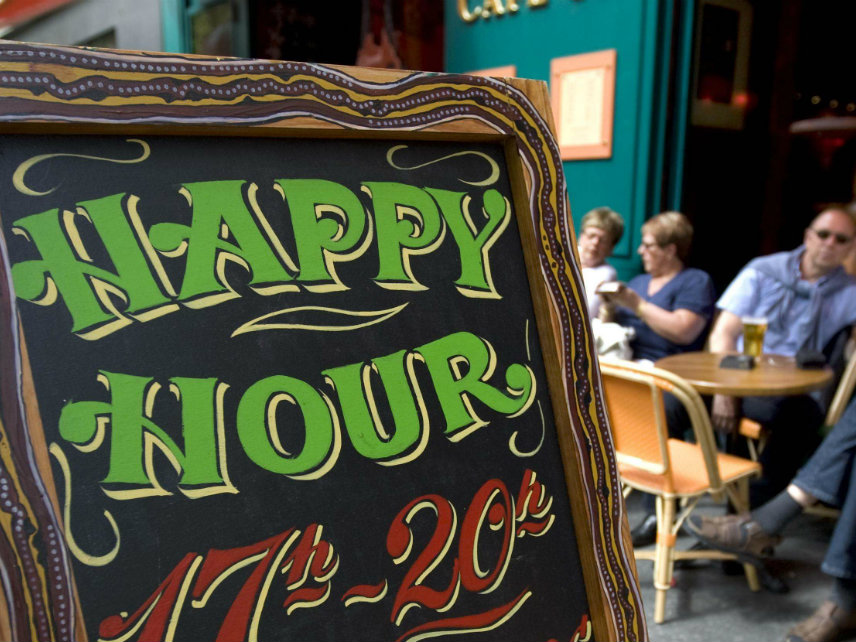Shhh! Virginia Bars Can Host Happy Hour, but Can't Talk About It
Advertising "half-priced drinks" is legal. Advertising "two-for-one" drinks is not. Huh?

In the annals of weird state liquor rules, save a special spot for Virginia's happy hour regulations. Bars and restaurants are free to offer discounted drinks, and are allowed to advertise those "drink specials" or "happy hour" deals, like anywhere else. But the specifics can get pretty confusing.
For example, advertising "half-price drinks," is completely legal. Calling the same discount a "two-for-one special," is, however, a violation of state law and can get an establishment's license suspended for seven days.
The same punishment applies if a bar is caught advertising deals under terms like "Thirsty Thursday" or "Sunday Funday."
Weird, yes. But also possibly unconstitutional. A lawsuit filed Wednesday in federal court argues that Virginia's happy hour advertising restrictions prevent business owners from communicating truthful information about their offerings, and makes it more difficult to attract customers. Geoff Tracy, who owns three businesses in the Washington, D.C., metro area (one of them in Virginia), the plaintiff in the lawsuit, says he cannot legally use the same advertisements for all three of his locations because of the Virginia law. Even posting those ads on social media or his restaurant's website could run afoul of the state law.
"If the government wants to curb drinking, it can engage in public education campaigns about the dangers of irresponsible alcohol consumption," says Anastasia Boden, an attorney with the Pacific Legal Foundation, which is representing Tracy in the lawsuit. "It cannot, however, stifle speech; there's simply no 'vice' exception to the First Amendment."
Virginia's happy hour rules are actually less restrictive than they once were. Until January 2014, bars and restaurants were only allowed to advertise happy hours or drink specials inside the establishment itself. Even though bars can now announce "happy hour" on social media or advertise it on sidewalk placards, they are still prohibited from specifying what the discounts are—so consumers are still mostly in the dark until they walk inside.
Advertising specific prices is "never going to happen," state Del. David B. Albo (R-Fairfax) told The Washington Post in 2015. He said anti-teen-drinking advocates "freaked out" when he proposed a bill to allow such speech.
That makes about as much sense as Virginia's happy hour laws do in the first place. Teens are already forbidden from consuming alcohol, so how does an additional ban on bars advertising cheap drinks change that? It doesn't. If teens are going to drink, they're probably going to do it regardless of what happy hour specials are on-offer at the corner bar, because teens don't drink at the corner bar.
Meanwhile, real business owners are subjected to unnecessary limitations on their First Amendment rights in order to stop this theoretical threat.
"Virginia is a great place to do business," says Tracy. "Eliminating this ridiculous law will make it even better."
